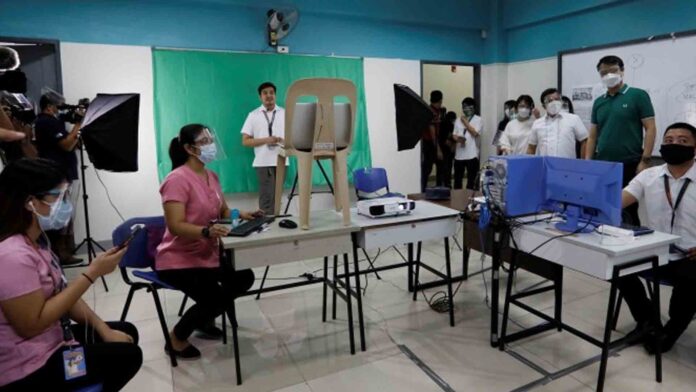A recent study by a member of the National Research Council of the Philippines (NRCP) bared that access to the internet is still a major challenge among teachers across the country amid the coronavirus disease 2019 (Covid-19) pandemic.
NRCP member Celina Sarmiento’s study looked into the experiences of 28,859 Department of Education (DepEd) teachers in Kinder to Grade 6, Junior and Senior High School.
Data sent to the Philippine News Agency on Tuesday showed that the majority (62.66 percent) of the respondents were compelled to physically report to school either thrice or twice a week.
In all teaching levels, 97 percent of the teachers surveyed experienced self-learning modules as a remote teaching modality. On the other hand, interactive online activities (synchronous or asynchronous) were only experienced by less than 30 percent of the respondents.
“Internet connectivity is still a major challenge in many areas of the Philippines, and thus, non-online modalities became the prominent form of education delivery in the ‘new normal’,” Sarmiento said.
She noted that as most of the respondents are from rural areas, the common internet connection used is mobile data (some 71 percent on average), which is more dominant compared to the more stable fiber connection.
Mobile data with capped data per day, internet access, and internet speed have been among the challenges in the shift to the new school environment.
The research project, Sarmiento said, also found out how some teachers are using their personal money to acquire devices or services needed to facilitate teaching.
Facebook Messenger emerged as the dominant channel for communication among teachers and students, based on the study.
“Seemingly, the popular social media (platform) can be accessed for free in most networks, and as a result, it became the most convenient way to communicate distantly,” Sarmiento said.
The NRCP, as a science advisory council of the government, suggests DepEd assist the teachers.
“The results of the study convey to the DepEd the promotion of work-life balance among teachers, as well as project systems and strategies that will aid in bridging to the ‘new normal’,” said NRCP executive director, Marieta Sumagaysay.
“This study has given a picture of the teachers’ plight in implementing emergency teaching options,” Sumagaysay said.
Sarmiento said the NRCP recommends that teachers should be provided with more budget for internet connectivity; and that communication companies and device merchants should offer special discounts and payment arrangements to teachers.
Guidelines on using Facebook and Messenger must be provided to prevent data privacy issues and to protect students from unwanted information.
“Empower teachers, increase their knowledge, and equip them with technologies they need,” Sarmiento said. (PNA)






